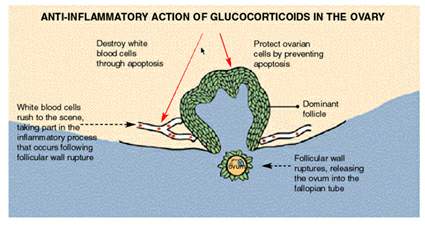Are you a journalist? Please sign up here for our press releases
Subscribe to our monthly newsletter:

Sounding in part the shrewd financial investor, in part the philosopher, Prof. Abraham Amsterdam is fascinated by windows of opportunity - from an ovary's perspective, that is.
As more and more women pursue successful careers, many are waiting well into their 30s and some into their 40s to have children. Much of the freedom to do so stems from a profound change in life expectancy rates. In 1880, a woman's average life span was only 45. Today, a Western woman has a fair chance of raising a toast on her 80th birthday and beyond.
New times, new customs. Yet one thing hasn't changed - a woman's biological clock. While a healthy 35-year-old woman is just as likely as a 25-year-old to deliver a normal, healthy baby, her chances of becoming pregnant within the first year of "trying" are roughly 50 percent. This rate plunges to 27 percent for women aged 40 to 44, accompanied by a one-in-three chance of miscarriage.
What controls this biological clock? And how can science be used to curb its relentless beat?
Prof. Abraham Amsterdam of the Weizmann Institute's Molecular Cell Biology Department is probing the cellular cross-talk determining ovarian function. A better understanding of this ticking puzzle might reduce the age-related decline in female fertility and may also yield important fringe benefits, delaying the dramatic increase in ovarian cancer, cardiovascular disease, and osteoporosis that mark the onset of menopause.
"Ovarian cell death is actually an essential process," Amsterdam emphasizes. The mammalian cycle is characterized by a Darwinian race between follicle-enclosed ova. One of the follicles (the dominant follicle) eventually takes the lead and excretes compounds suppressing the development of the other follicles. In spite of a woman having roughly 500,000 eggs before puberty, on average only 480 of these will reach ovulation.
Why must so many eggs be eliminated? "One can describe this as a 'death-for-life' phenomenon," says Amsterdam. "It's essential to eliminate the extra eggs; otherwise the human race would cease to exist, since women cannot normally have multiple-embryo pregnancies."
Interestingly, the process governing ovarian cell death is the same as that which plays a central role in protecting the body against cancer. Known as apoptosis, or programmed cell suicide, it is how the body rids itself of surplus or damaged cells. "Our primary goal is to learn how to fine-tune ovarian cell death," says Amsterdam. "The ability to induce apoptosis may lead to future treatments for ovarian cancer. On the other hand, by suppressing apoptosis we may extend a woman's reproductive years."
Achieving this goal - as Amsterdam and others are increasingly discovering - is all about determining ways to maneuver the intricate cross-talk between genes and their protein products. The key is to learn which levers to push - and how. It's much like operating a marionette. The strings of the marionette include hormones, apoptosis-inducing "death genes," and their alter ego, "survival genes." The first steps in this direction have already been taken. Working with doctoral student Ravid Sasson and Dr. Kimihisa Tajima, a visiting physician from Japan, Amsterdam has recently discovered that glucocorticoids (hormones such as cortisol and cortisone) protect ovarian cells from apoptosis. As reported in Endocrinology, the study demonstrated that glucocorticoids have a dual effect. "While they protect ovarian cells from apoptosis, they have the opposite effect on white blood cells taking part in the inflammatory process during menstruation," says Amsterdam.
Like glucocorticoids, Leptin, secreted by adipocytes (fat cells), dramatically reduces ovarian cell death, as well as controlling sex hormone production. Working with doctoral student Dalit Barkan and Prof. Menachem Rubinstein of the Institute's Molecular Genetics Department, Amsterdam found that both leptin and the glucocorticoids exert their effect through a central behind-the-scenes mediator: the Bcl-2 survival gene. He is currently collaborating with physicians at Rehovot's Kaplan Hospital and the Tel Aviv and Sheba Medical Centers to examine the effect of these substances on women undergoing in vitro fertilization.
What about a broader, standard treatment for young women wishing to push the "snooze button" on their biological clocks while they pursue advanced degrees, start a company or travel around the world? "Currently, this remains a distant prospect," says Amsterdam. "Nevertheless, a better understanding of apoptosis in normal ovarian function may yield other benefits, including improved treatments for ovarian pathologies. Recent evidence links impaired apoptosis with polycystic ovaries (which cause infertility) as well as with ovarian cancer - the number one gynecological killer."
